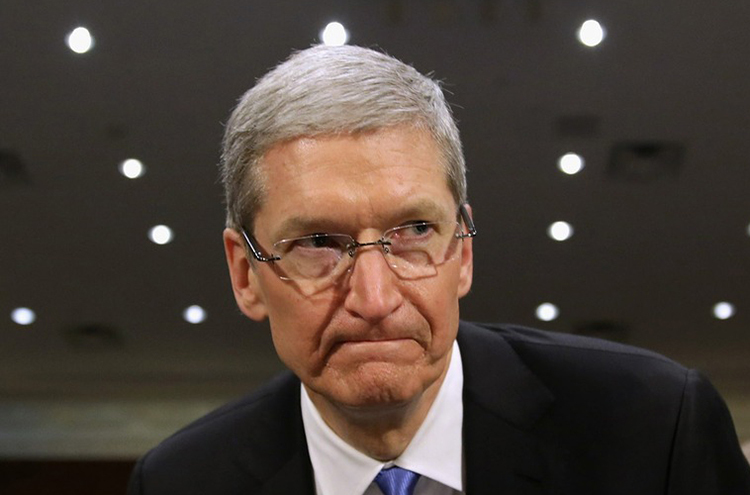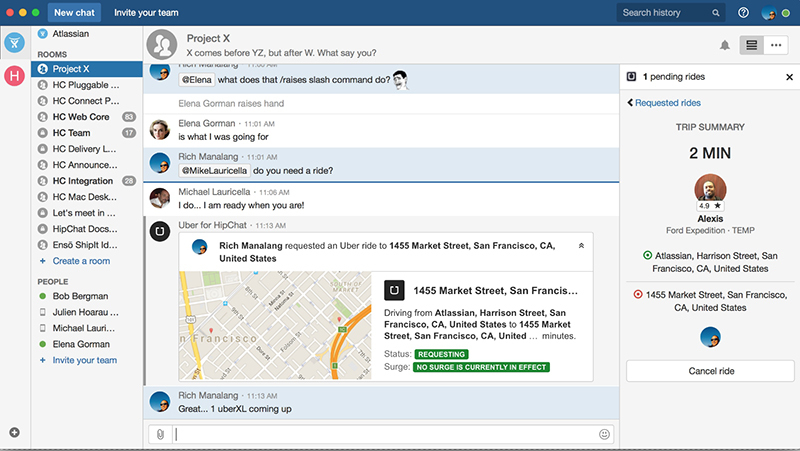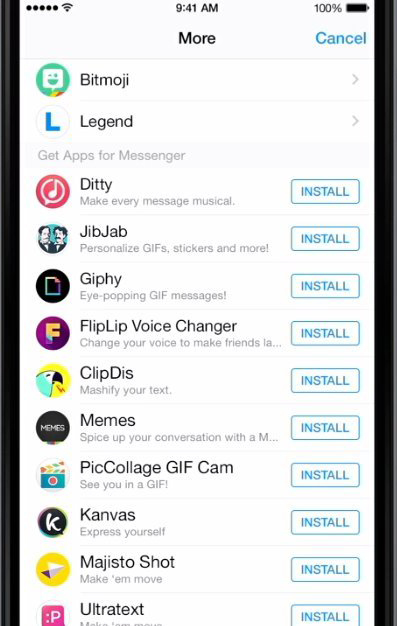Why Apple should be afraid of instant messengers from Facebook and Google?

Now in the market of application messengers is a hidden revolution. Well-known Internet companies, such as Facebook, Google, Atlassian and Slack, extend the functionality of their services, as a result of which applications can be used not only to send text, audio or video. Rather, they will look like miniature operating systems.
For example, just yesterday The Wall Street Journal reported that Google is currently working on a new communication service, in which developers can easily connect their applications by displaying them directly in the message typing window. The future solution from Google may compete with the new Facebook project, codenamed “M”, a virtual assistant that will help the user perform a number of routine tasks (from shopping to restaurant reservations), and directly from the Facebook Messenger application.
Now, at the end of 2015, all these future messengers stuffed with various functions look like an interesting trend. And in the place of the Apple management, I could hardly sleep at night carelessly - largely because of the rays from the rise of smart communication apps that clearly interfere with quiet, stable sleep.
')
Apple rules the ball
Until now, Apple had a very successful strategy, but at the same time it depends on many factors. The lion’s share of the corporation’s revenues comes from iPhone sales. Not least, people love this smartphone because of the availability of the App Store - the only official source where you can get applications. Let's not forget that Apple takes 30% of all sales. This fact makes this online store "center of the universe" - for developers who need to sell applications, and for customers who want to use them.

Call for ordering a car in Uber through Atlassian HipChat.
If a person already has a lot of iOS applications, then he is more likely to switch from an old iPhone to a new one than start an adventure with an Android device from scratch.
The instant messengers in question represent an alternative way for both developers and users. As a result of their development, Apple’s strong grip on the application market may weaken significantly. Moreover, it can have an impact on the smartphone market as a whole.
New Hope
Take a look at Facebook, which boasts its own app store, offering interesting features and add-ons for more than 800 million users who have Facebook Messenger installed. You can also pay attention to the successfully implemented Slack integration with the Lyft service and the Uber partnership with the Atlassian's HipChat project - in both cases the user can order a car without even closing the message view window.
In fact, the idea is very simple and clear: people like to communicate, and do not like to close the messenger in order to open another application. Simply place the desired application directly in the chat, and you get the best of both services. The success of such an idea has already been proven in Japan. The application for communication Line became super popular by implementing the function of mobile payments and calling a corporate (!) Taxi right in the messenger.
As soon as you download (for free or for money) the application for the messenger - be it Facebook Messenger, the upcoming Google or Slack service - you will access it from any device. That is, you do not need to install them separately, it is enough to install the application itself for communication, and it itself will do everything for you. Below is a screenshot of the Facebook messenger with the ability to connect other services.

Users will benefit from all these changes. As soon as a certain level of development is recorded in this market, companies will weaken their efforts to demonstrate the convenience and user training, but they still have to ensure that customers get the maximum benefit from their acquisitions.
And here Apple has to hear the alarm bell. As soon as people start getting the applications they need from Facebook, Google, Atlassian or Slack, they will lose interest in the App Store. To date, we have not heard of any developments of the corporation in the field of advanced cross-platform tools for communication or artificial intelligence, which means that the “apple” competitor for modern multifunctional instant messengers will not appear soon (if at all).
Developers will probably prefer to create applications for a unified messenger platform that works on all devices, rather than developing separate products for iOS and Android. If, say, the same Facebook Messenger works literally on all devices, and users love this application, then why go the thorny path to glory through the Apple App Store?
And now, potentially with the loss of a huge customer base using the App Store, Apple’s strategy does not look as strong and stable as it seemed before.
Source: https://habr.com/ru/post/297508/
All Articles